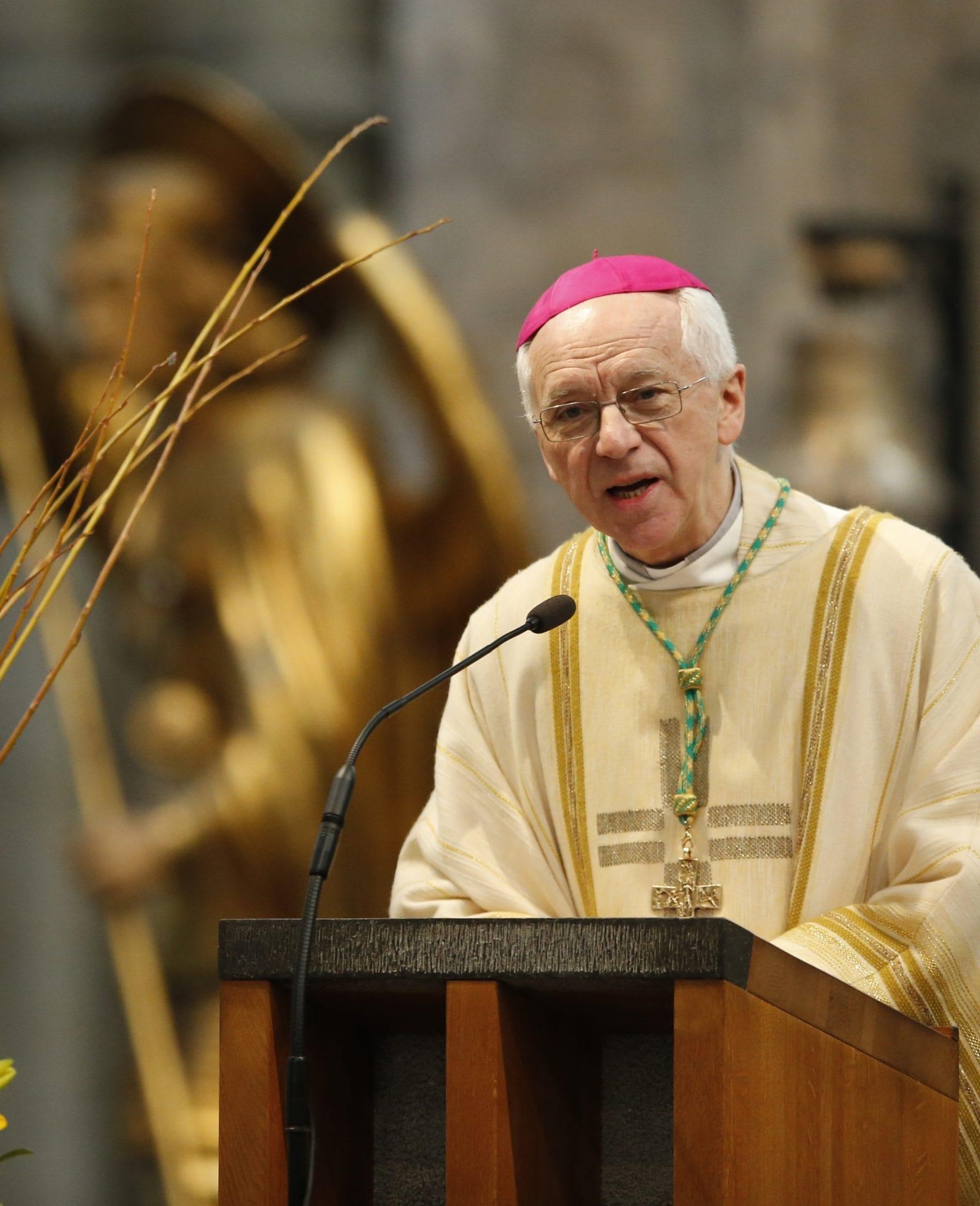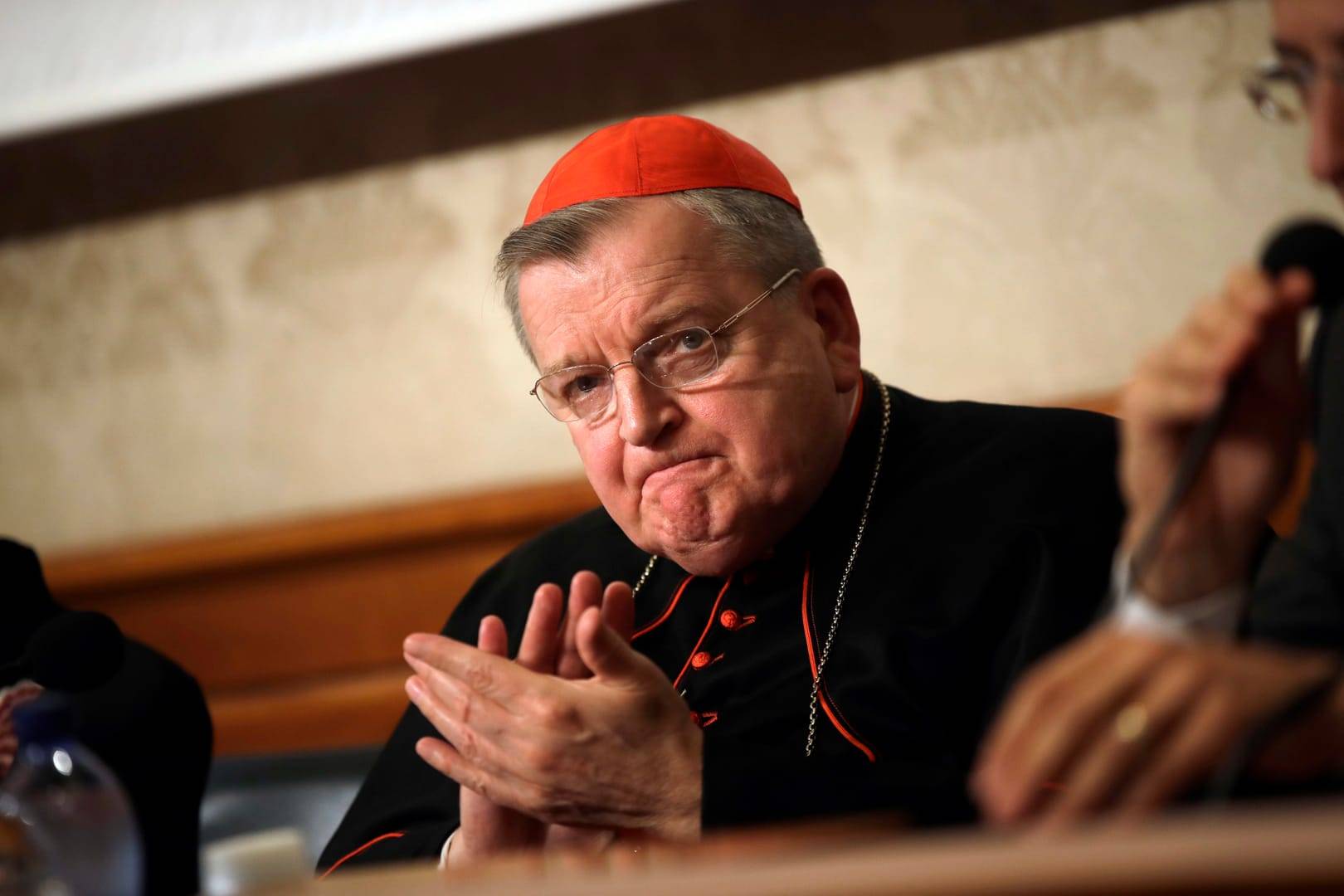[On Sunday, Oct. 9, Pope Francis announced a consistory on Nov. 19 for the creation of 17 new cardinals, including 13 under the age of 80 and therefore eligible to vote for the next pope. Crux is offering a series of profiles of the new cardinals.]
Pope Francis has repeatedly insisted that prelates of the Catholic Church shouldn’t sit around in their offices and demand that the world come to them. Instead, they’re to get “out of the sacristy and into the street,” meeting people where they are and engaging them in dialogue.
If dialogue with post-modernity is what Francis is looking for, he certainly seems to have found his man in Archbishop Jozef de Kesel of Belgium, named to his present post by Francis in 2015 and now set to become one of 17 new cardinals to be created by Francis on Nov. 19.
Some of the controversy that has occasionally surrounded De Kesel, much like Francis himself, can probably be explained by uncertainty in some Catholic quarters over where dialogue ends and capitulation begins.
If nothing else, Catholics in Mechelen-Brussels certainly can be forgiven a sense of whiplash over the last decade.
For more than thirty years they were led by the renowned Cardinal Godfried Danneels, a great liberal hero of virtually every debate within Catholicism and a perennial bookmakers’ favorite to be pope himself one day.
Things, however, did not end well for Danneels, when it was revealed that he had apparently recommended temporary silence to a victim of sexual abuse at the hands of a fellow Belgian bishop. Though he insisted that the advice was aimed at helping all parties through a difficult time, coming on the heels of a major wave of abuse cases across Europe, it dealt a serious blow to his public image.
Danneels was succeeded by Archbishop André-Joseph Léonard, and a greater study in contrasts would be hard to imagine. Where Danneels was very much a man of Vatican II, Léonard’s points of reference clearly were Popes John Paul II and Benedict XVI; where Danneels was progressive-minded and on good speaking terms with secular culture, Léonard was a strong “Catholic identity” sort of prelate.
Whereas Danneels was witty and charming, Léonard occasionally came off as rash, ill-tempered and stern, all of which made for a difficult five years.
Cue the 69-year-old De Kesel, who was a Danneels protégé who spent eight years as auxiliary bishop of Brussels until he was appointed to the diocese of Bruges in 2010. One of his early moves was to close a traditionalist body called the “Fraternity of the Holy Apostles” which Léonard had founded.
De Kesel has openly suggested that priestly celibacy should be optional in Catholicism, stating in September 2010 that “people for whom celibacy is humanly impossible should also have the chance of becoming priests.”
In November 2015, shortly after Francis named De Kesel to take over in Brussels, he identified himself with the push at the pontiff’s two Synods of Bishops on the family in favor of allowing divorced and civilly remarried Catholics to receive Communion.
Interestingly, De Kesel said in an interview around that time that he wouldn’t justify an opening to the divorced and civilly remarried under the rubric of “mercy”, saying he actually finds that term a bit “condescending”.
“I like to take words like ‘respect’ and ‘esteem for man’ as my starting point,” he said. “And that may be a value that we, as Christians, share with the prevailing culture.”
When asked about his attitude toward homosexuality at a news conference after his appointment, De Kesel said, “I have much respect for gays,” including “their way of living their sexuality.”
While that sort of language endears De Kesel to Catholic progressives and secularists alike, it has also alarmed more tradition-minded critics. A Belgian group called Pro Familia, for instance, has publicly suggested that his appointment to Brussels was a “mistake,” and protested at his installation Mass.
On the other hand, De Kesel has also insisted on an “opt-out” provision for Catholic hospitals from Belgium’s euthanasia law, disappointing some liberals in the country who expected him to be more accommodating.
“We were happy when he arrived, he seemed like an open man and I had great hopes for him,” said Jacqueline Herremans, head of the pro-euthanasia Association for the Right to Die with Dignity. “I didn’t expect comments like this.”
There’s also been some criticism of De Kesel in terms of his track record on handling abuse cases. He took over in Bruges from Bishop Roger Vangheluwe, the prelate for whom Danneels was accused of covering up, and critics say De Kesel didn’t really root out the culture of corruption in the diocese.
He’s also been accused of appointing a known abuser to a pastoral position in the diocese.
Personally, as Geert De Kerpel, the editor of the Roman Catholic weekly Tertio puts it, De Kesel has a reputation for being “courteous” and “affable,” the kind of man who puts a positive public face on the Church.
In a sense, De Kesel is perhaps a Belgian version of the same dynamics that often surround Pope Francis himself: Acclaim in secular circles outside the Church, frequently good reviews at the Catholic grassroots, but some ambivalence among insiders.
What seems beyond reasonable dispute is that for the foreseeable future, De Kesel will be a Catholic heavyweight in Europe, joining the ranks of figures such as Cardinal Reinhard Marx of Munich and Cardinal Christoph Schönborn of Vienna as key allies in implementing the pope’s vision on the Old Continent.
For that reason alone, De Kesel is a man worth watching, not just during the Nov. 19 consistory ceremony but in the months and years to come.















